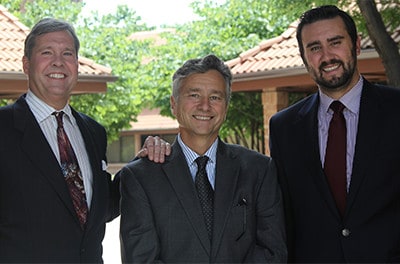Updated:3/11/2021
Tensing up before an accident – help or hurt? Is there really any research or evidence that will give us a clear answer?
Unless you are in a car accident where you clearly see a vehicle coming towards you, you will not have time to brace yourself. It’s also been said that an intoxicated driver doesn’t sustain significant injuries because they don’t tense up before an accident. And yet for those of us who have experienced the aftermath of a vehicle injury, we know our bodies hurt for several days, even if “significant injuries” don’t seem to be present.
So, does tensing up before an accident help or hurt?
Differences between Airplane Crashes and Car Accidents
Some evidence to answer this question can be found in looking at the difference between airplane and vehicle crashes. While some of the information has altered a bit, the Federal Aviation Administration (FAA) has been studying whether bracing hurts or helps since 1967.
In an airline crash, there is proof that bracing yourself does help reduce the chance of physical injury. There is time to prepare for a collision when a plane is going down, unlike in a car accident. In a plane, it has been shown that planting your feet on the floor, leaning forward with your head towards your knees, is the best way to brace yourself for impact.
However, in a vehicle accident, bracing isn’t typically an option. If you have time to brace, you likely have time to avoid the accident altogether. The good news here though is that you are more likely to survive a car accident than an airplane crash.
Should I Brace for an Accident?
Victims of head-on or otherwise expected accidents do tend to brace as a reflex. In fact, one study found more than half of victims of head-on collisions locked their arms against the steering wheel or dashboard, pushing themselves against the seat. This pressure does protect the head and chest from the impact, and typically results in fewer injuries. In essence, your body braces to protect the most vulnerable areas.
Pushing your head into the headrest, and your back into the seat helps protect your head and back from injuries. Keeping your body forward-facing will reduce neck and back injuries. Tensing your body, as though it is going to bear the brunt of a large impact, tightens the muscles for protection of your internal organs.
After an Accident
Whether you had time to brace or not, your body will feel the impact of the accident. In the moment, your adrenaline may prevent you from feeling the full extent of the pain or trauma. It is important to be evaluated immediately, and then have a follow-up within the week.
Even at low speeds, whiplash can occur and if left unchecked, can cause a domino effect of problems including numbness in the arms, shoulder pain, dizziness, and reduced range of motion.
Yes—DO Brace for Impact
According to one chiropractor, you should always brace for impact when you can. Those who brace tend to have fewer injuries and better long-term outcomes from those injuries-after-an-auto-accident. The theory is that we have lots of muscles in our neck that can potentially protect the ligaments, discs, and nerves in the neck. If you remain relaxed, those ligaments, discs, and nerves will take more of the force, resulting in more injury. Muscles tend to heal much faster and easier than ligaments, discs, and nerves, so:
- Brace your head against your car’s headrest (make sure your headrest is properly adjusted for your height).
- Look forward but don’t LEAN forward. Even the slightest turn of your head at the time of impact will likely increase your level of injury.
- Push your back hard against the back of the seat and push your foot against the brake pedal.
- Tense your body as though you were about to be punched in the back (by a 3,500- pound vehicle).
- Even if you think you are “fine” after the accident, see a doctor for a full evaluation. Your body is flooded with adrenaline at the time of an accident, and this adrenaline can mask injury symptoms.
Further Reading: Using a Smartphone While Driving, Not So Smart
Contact Our Experienced Colorado Personal Injury Lawyers
 If you are properly seat-belted in your vehicle, your car has airbags, and you brace for impact, you stand a much better chance of sustaining fewer injuries. If you find you have suffered injury from a negligent driver’s actions, contact an experienced Colorado personal injury attorney as quickly as possible. At Hull & Zimmerman, our committed personal injury lawyers are dedicated to the belief that everyone deserves justice. Contact us at (303) 423-1770 or (866) 385-3505.
If you are properly seat-belted in your vehicle, your car has airbags, and you brace for impact, you stand a much better chance of sustaining fewer injuries. If you find you have suffered injury from a negligent driver’s actions, contact an experienced Colorado personal injury attorney as quickly as possible. At Hull & Zimmerman, our committed personal injury lawyers are dedicated to the belief that everyone deserves justice. Contact us at (303) 423-1770 or (866) 385-3505.

